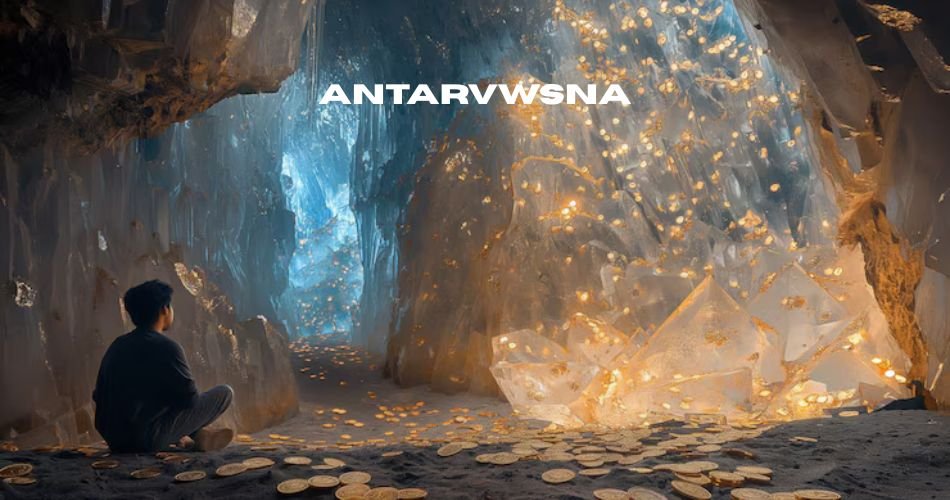The term Antarvwsna may sound ancient, mysterious, and almost poetic, yet its relevance to modern life is undeniable. It is derived from two Sanskrit-rooted words—‘Antar’, meaning ‘inner’ or ‘within’, and ‘Vasana’, meaning ‘desire’, ‘impression’, or ‘tendency’. Together, Antarvwsna signifies the deep, unspoken desires that dwell inside every human being. These desires are not the obvious cravings for food, wealth, or fame, but subtle, often unacknowledged longings that influence the choices we make, the people we are drawn to, and the paths we walk. They exist silently in the background, yet their pull can be stronger than logic or external influence. Recognizing and understanding this powerful internal current is the first step toward living a life of authenticity and emotional depth.
Understanding the Psychological Fabric of Inner Desires
From a psychological standpoint, Antarvwsna can be viewed as a collection of subconscious urges stored in the deeper layers of our mind. These urges are not always conscious, which is why they often surprise us with their sudden intensity or irrational nature. Psychologists like Sigmund Freud and Carl Jung have emphasized how our unconscious mind governs our behavior, often without our awareness. Freud described this inner realm as driven largely by libido and instinctual desires that are either fulfilled or repressed. Jung introduced the concept of the shadow self, which houses parts of ourselves we disown or reject—often including our deepest desires. Antarvwsna, in essence, is the bridge between who we appear to be and who we truly are when no one is watching. It’s the echo of the suppressed voice that keeps whispering in the background of our everyday decisions.
The Spiritual and Cultural Roots of Antarvwsna in Indian Philosophy
Indian spiritual traditions have long acknowledged the complexity of human desire. In texts like the Upanishads, Bhagavad Gita, and Patanjali’s Yoga Sutras, the concept of Vasana is viewed not just as a psychological tendency but as a karmic imprint that travels with the soul. Desires born from past actions and experiences influence future incarnations, and until these desires are either transcended or fulfilled, they keep manifesting in our lives. Antarvwsna, in this view, becomes a spiritual knot that must be untied through conscious living, self-inquiry, and inner purification. Unlike Western thought, which often sees desire as something to be expressed or managed, Eastern philosophy encourages a transformation of desire—moving from base cravings to higher aspirations like service, wisdom, and liberation.
Why Antarvwsna is the Silent Architect of Our Lives
Every major life decision we make—who we love, what we study, which risks we take—has an invisible string tied to our Antarvwsna. Think about it: how many times have you felt drawn toward something without knowing why? Maybe a certain city, a person, a creative path, or even a philosophy. These are not always coincidences. Often, they are guided by the silent pull of our inner desires. Even resistance to change, procrastination, or persistent dissatisfaction in a seemingly ‘good’ life can stem from unfulfilled Antarvwsna. It’s like having a compass inside that keeps pointing in a direction we ignore at our own risk. The more we fight it, the more fragmented we feel. But when we align with it, life begins to flow in a way that feels organic, energized, and purposeful.
The Inner War: When Social Masks Clash with Inner Desires
Modern life often demands conformity. We build identities around roles—employee, parent, friend, citizen—and over time, these roles become rigid masks. But our Antarvwsna doesn’t care about these masks. It is personal, wild, and deeply honest. That’s where inner conflict begins. When the person we show to the world is vastly different from who we are inside, it leads to cognitive dissonance. This is not merely uncomfortable; it’s exhausting. The pressure to maintain a persona while denying our true self can result in anxiety, depression, and even physical illness. Inner desires do not vanish just because we ignore them—they express themselves in disguised forms like addiction, passive aggression, or dreams filled with symbolism. Facing and integrating our Antarvwsna is not about being selfish; it’s about becoming whole.
Hidden Desires in Love, Intimacy, and Human Relationships
Nowhere does Antarvwsna reveal itself more vividly than in matters of the heart. Love is not just a meeting of minds but also of needs, fantasies, fears, and longings. Unspoken desires can either bond two people deeply or drive them apart. How many relationships suffer not because of lack of love, but because of unmet emotional or sexual needs that were never voiced? Sometimes, we are not even aware of what we truly seek until it’s reflected back to us through attraction or jealousy. Antarvwsna plays a crucial role in our emotional intimacy. It helps us recognize not only what we want from others but also what we need to heal within ourselves. Embracing this truth allows for vulnerability, depth, and a more authentic connection with others.
The Career Path Influenced by Subtle Internal Urges
You might think your career path is based on logic, market trends, or family expectations—but dig deeper and you might find the voice of Antarvwsna shaping it all along. Some people are drawn to creative fields despite low pay, while others leave lucrative jobs to teach yoga or start organic farms. These aren’t irrational decisions; they are bold acknowledgments of inner desires. When we ignore this voice for too long, we may find ourselves feeling burned out, stuck, or uninspired. Fulfillment doesn’t come from ticking boxes—it comes from walking a path that echoes our soul’s whisper. Antarvwsna may be subtle, but when followed, it can lead to careers that feel like callings rather than obligations.
Art, Literature, and the Expression of Antarvwsna
From poetry to painting, music to storytelling—art is perhaps the most direct expression of Antarvwsna. Artists often describe being ‘moved’ or ‘possessed’ by a vision they can’t explain. That’s Antarvwsna at work. Great works of art are born not from the mind, but from the soul’s unfiltered voice. Even literature throughout history—from the epics of ancient civilizations to modern psychological thrillers—often revolves around a protagonist’s inner conflict, a desire they don’t fully understand. These narratives resonate because they mirror our own struggles. Art becomes a mirror where we see not only beauty but also the raw, unfinished parts of ourselves.
The Tools to Listen and Work With Antarvwsna
Understanding Antarvwsna requires more than thought—it requires attention. Journaling is a powerful tool. When you write without censoring yourself, hidden themes begin to emerge. Meditation is another pathway. In silence, when the world quiets down, the voice of Antarvwsna becomes audible. Shadow work—a practice popularized in Jungian psychology—involves embracing the parts of ourselves we usually hide, including desires that feel taboo or shameful. Therapy, especially modalities like depth psychology or psychoanalysis, can also help unearth and integrate these buried desires. The more we engage with these tools, the clearer the inner voice becomes.
Turning Antarvwsna into Purpose and Power
Antarvwsna doesn’t always ask to be fulfilled in literal ways. Sometimes, it simply wants to be acknowledged, respected, and given space. A desire to be seen might translate into performance or storytelling. A longing for freedom might become a nomadic lifestyle or a startup. The key is to translate the energy of desire into constructive channels. When you stop fighting your inner longings and start flowing with them, life transforms from a series of obligations to a dance of conscious choices. That’s where power lies—not in control, but in aligned expression.
Conclusion
In a world obsessed with appearances, logic, and fast results, Antarvwsna asks us to slow down, turn inward, and listen. It’s not a weakness to admit that you have unfulfilled desires—it’s a sign of maturity. By befriending this inner voice, you become more truthful, more creative, and more grounded. Life begins to feel like a reflection of your true self, not just a role you’re playing. So next time your heart pulls you toward something unexplained, don’t rush to silence it. That might just be your Antarvwsna knocking, asking to be let in.






